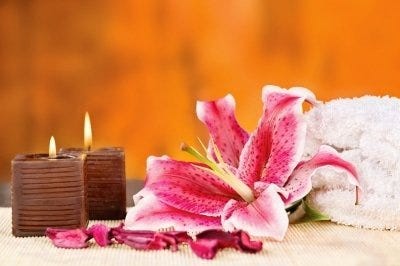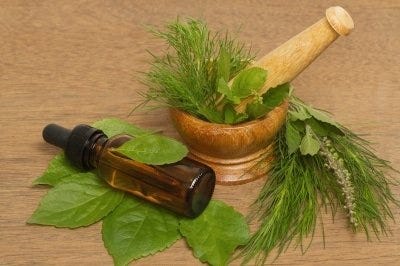Decoding natural skin care
Natural skin care is something that is on everyone's lips these days, but there still seems to be a lot of confusion around as to what these things actually really mean, and what we should be looking for in so-called natural and organic products before parting with our hard-earned cash. I spoke to four skin care experts to get their advice.
Rene Van Willigen is the Director-Co Founder of Human+Kind Ltd and developed a natural, multi-tasking skin care range after five years of extensive research along with the expertise of world renowned formulators.
Anna Gedman is the Managing Director of Beautiful Brands LLC, a distributor specialising in natural and organic brands including Rahua, Konjac Sponge Company and Balanced Guru and has twelve years' experience in the beauty industry across the UK and Middle East working with many leading brands.
Gemma O'Dwyer is the Brand Manager for Beautiful Brands LLC: Educated in beauty and having worked with leading UK brand Elemis in London, she has a good understanding of client’s expectations when it comes to product recommendations.
Aly Rahimtoola is the founder and Managing Director of Harmony Cosmetics who are the manufacturers of Herbline Essentials, a UAE home-grown all-natural brand. Their products adhere to the principles of Ayurveda and are blended from natural ingredients.
What are the benefits of using natural and/or organic skin care products?
Rene: It means there are no harmful ingredients, and natural products are always better than using chemical laden products.
Anna: Years ago the industry said that our skin acted as a barrier, but now research shows that our skin absorbs up to 60% of products and toxins used on our skin. These toxins accumulate in our body causing damage to vital organs, and disrupting our bodies balance.
Aly: Recent research conducted by leading universities in the US and UK has shown that there is a link or higher likelihood of the body being subject to chronic illness or various forms of cancer from the use of products that contain a high amount of artificial ingredients – most commonly parabens and other preservatives. That is not to say all products that are not natural are bad for you, but remember that the skin is the body’s largest breathing/living organism and it absorbs over 70% of what is applied.
Natural / organic skin care can be very confusing - what are the criteria for a product to call itself natural?
Rene: It has to contain ingredients provided by nature and not man-made.
Anna & Gemma: For a product to claim to be 100% natural the product should be free from any chemicals, to be 100% organic the ingredients are required to be organically grown and untouched by any pesticides or chemicals. Some products which contain natural ingredients can still contain an element of chemicals to stabilise and support the product. The trick is to learn your ingredients.
Aly: In the US, the Natural Products Association (NPA) defines natural products as comprising at least 95% ingredients (not including water) made from petroleum-free, renewable flora, fauna and mineral resources. When used, approved synthetic ingredients must be considered people-safe and earth-friendly. Additionally, products with ‘natural’ claims are expected to have environmentally conscious packaging, and are not tested on animals. If a product meets these criteria, it can be labelled ‘100% natural’. But 100% natural does not mean automatically ‘organic’. In the US and in Europe the ‘organic’ sector is one of the most heavily regulated from food to skin care. The US Department of Agriculture has defined four categories of USDA organic certification: (1) 100% Organic - composed completely of organically produced ingredients, (2) Organic - composed of at least 95% organically produced ingredients, (3) Made with Organic Ingredients - composed of at least 70% organically produced ingredients. (4) Organic Ingredients - products with less than 70% organically produced ingredients. Organic ingredients are produced, manufactured and handled entirely free of chemical fertilisers, pesticides and preservatives.
Photo credit: Marin - freedigitalphotos.net
Some countries have laws to prevent companies making false claims when it comes to the percentage of natural or organic ingredients used in their products, is there anything like that here in the UAE?
Rene: Human + Kind products have been fully approved by the UAE authorities in relation to all our products. As an ethical company we work according to strict European guidelines and are fully compliant with the EU Cosmetic Directive on Cosmetic Products.
Gemma: There are a few symbols which you can look out for on your products. One is the ‘USDA’ Organic stamp, which is awarded to any products that are certified organic. You will find this on our product range, Balanced Guru. Another one of our brands, Rahua uses the stamp ‘made with certified organic ingredients’ which is visible on the reverse of the bottle. We don’t claim that Rahua is 100% organic, but it is 100% natural with a percentage of organic ingredients inside. Products that are proud to be natural or organic would clearly mark this on the packaging with an approved stamp of recognition.
Anna: When you register a cosmetic product in the UAE, it goes through strict testing to ensure that the product is safe to use following UAE guidelines. Also an iPhone app called Think Dirty is a handy tool, which allows you to scan products and tells you straight away if they are good or bad for you.
Aly: All products when imported or sold in the UAE must obtain permission from Dubai Municipality who test out ingredients and scrutinise product labelling to ensure consumer safety and protect consumer rights. Despite the best efforts of such regulatory bodies, there are still manufacturers that make unfounded claims on their packaging.
Lots of skin care products call themselves organic or use the word organic in their name, but this can be misleading – what should people look for in a true organic product?
Anna: I would firstly look at the ingredients list, if you cannot read or pronounce the name, then it is most probably a chemical.
Aly: It’s important for beauty brands to get their products certified – ‘natural’, ‘organic’, ‘paraben-free’, etc, in order to communicate more effectively with consumers and gain their trust.
There’s so many different labels on products these days – some are labelled vegetarian / vegan / not tested on animals etc. What do these labels really mean?
Rene: In Europe, testing on animals has been forbidden for the last few years and products that are suitable for vegans and vegetarians do not contain any animal by-products.
Anna & Gemma: Vegan means that the product is safe to use for vegetarians and vegans, and none of the ingredients are from an animal source. Many companies now support the charity ‘Cruelty Free’ - when you see this emblem on the product, the charity has researched that product to prove that the item has not been used or tested animals, nor has it been injured in any way. You can also check on their websites (Links here: Cruelty Free and Vegan Society) to find a list of approved brands. Our brand, Konjac Sponge Company proudly supports ‘Cruelty Free’ and ‘Vegan’. We have these stamps visible on the packaging of this product.
How can we tell the difference between companies that appear to be natural and companies that make truly natural products?
Anna & Gemma: The key thing is to research the product before you buy it. There is so much information available now on the internet. If you are unsure, note down the ingredients and search them online.
Aly: A company that is truly natural tends to be quite transparent in explaining and detailing its process and manufacturing as it has nothing to hide. Following that company on social media and checking its website helps to gauge how genuine the products tend to be.
Photo credit: Praiseng - freedigitalphotos.net
If a product claims to be natural does it mean it has no SLS / parabens or other nasties in them?
Anna & Gemma: No, a product can be made of 100% natural ingredients, but when it comes to putting them all together chemicals can be added. Parabens for instance extend the shelf life of the product, SLS is a detergent that can be added to create foam - an ingredient which is commonly found in our washing detergents.
Aly: Check the ingredients closely and if in doubt refer to the Skin Deep Cosmetics database which is available for free at www.ewg.org/skindeep - it's an independent research group based in Washington DC that evaluates the safety and toxicity of each product/brand, and a valuable resource for consumers.
What are your top tips for ensuring we don’t get mislead when trying to buy the best natural and no-nasty products?
Anna & Gemma: Do your research, look online before you buy. Don’t be fooled into thinking the word 'Botanicals' means that the product is natural.
Why are natural / organic / no nasty products often so much more expensive than other products?
Rene: In many cases natural and organic products ask for a premium price as it is more expensive to use natural ingredients. In Human+Kind’s case we have strived to be at an accessible price level at all times because we believe natural products should be available for everyone.
Anna & Gemma: To be 100% organic the products ingredients will have to have gone through a costly growing phase to ensure purity. A good organic product will also be produced in a factory which specialises in organic products, which reduces risk of contaminating the products with chemicals. It also depends if products are paraben, silicone, gluten and SLS free - chemicals are a cheap option to replace these ingredients, which again reflects in the cost. In a chemical based product, you would normally find that the cost of the packaging is more expensive than the actual ingredients!
What about preservatives in skin care products to improve their shelf life – are these bad for us?
Rene: Without preservatives products will have no shelf life but there are preservatives which are naturally derived.
Anna & Gemma: A paraben is a common chemical to increase the shelf life of a product and some studies state that this ingredient is carcinogenic. Rahua replaces a chemical paraben with ‘Palo Santo’ a natural ingredient from the Amazon Rainforest which preserves the product, naturally. As a general rule it is always best to steer clear of any chemical ingredients if at all possible.
What else can you tell us that we need to know about choosing the best natural products for our skin?
Anna: Don’t be put off by the smells of natural products. Natural products have no artificial perfumes added, so what you smell is a blend of natural ingredients. Some natural products will have no scent at all and some will have added aromatherapy oils to add scent.
If all else fails and we’re still confused about labels, what ingredients in skin care products would you recommend are most important to avoid?
Rene: Parabens and SLS to name a few...
Anna & Gemma: Triclosen, Methylisothiazolinone, Tetrasodium.
Aly: It depends on your skin type but in general look at the ingredients and try to avoid anything that ends with a 'ben' as that is a paraben.
Final word:
Anna & Gemma: Next time you pick up a product which is chemical based, just think what is this actually doing for your body? Chemicals can cause hormonal imbalances, skin irritation, respiratory problems, slow down organ development, cause cancer…the list is endless. Is it really worth saving a few Dirhams when it comes to choosing your skin care?





